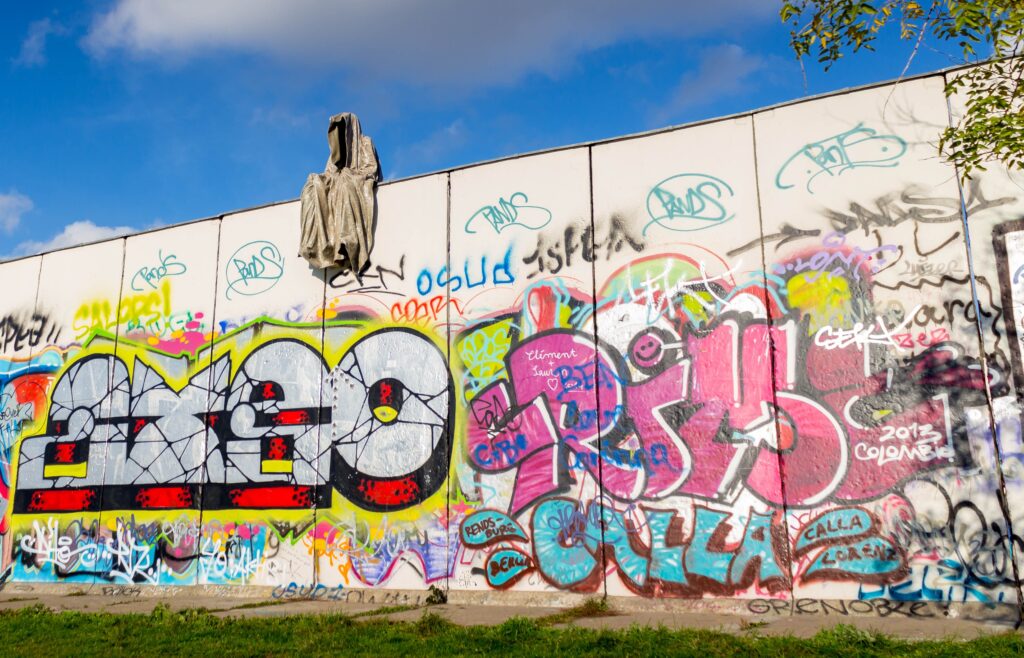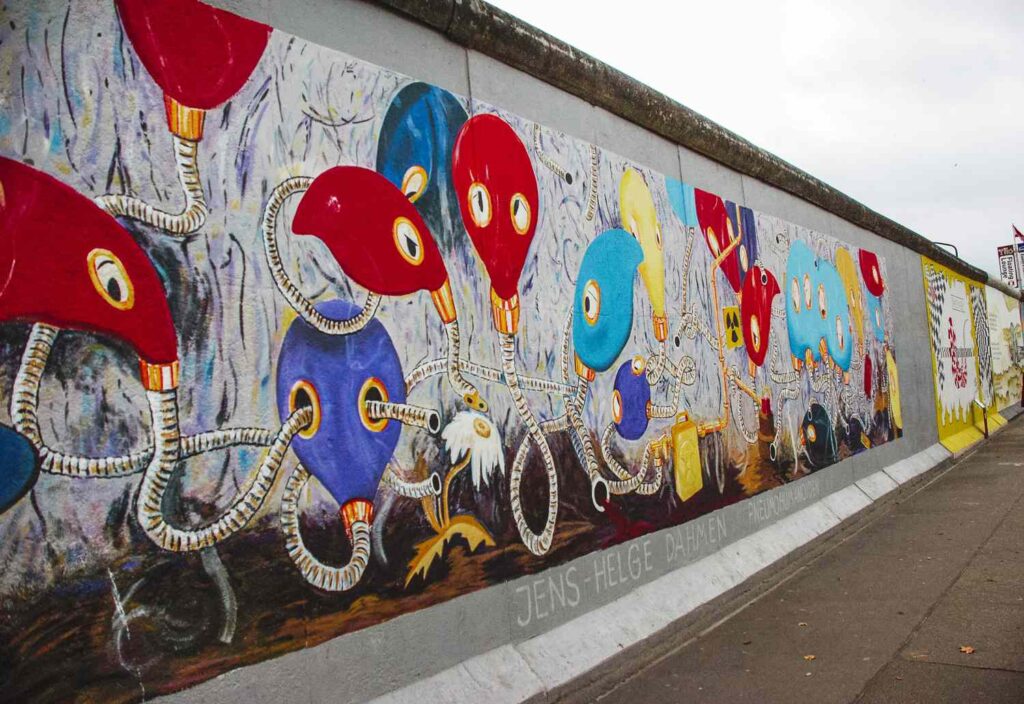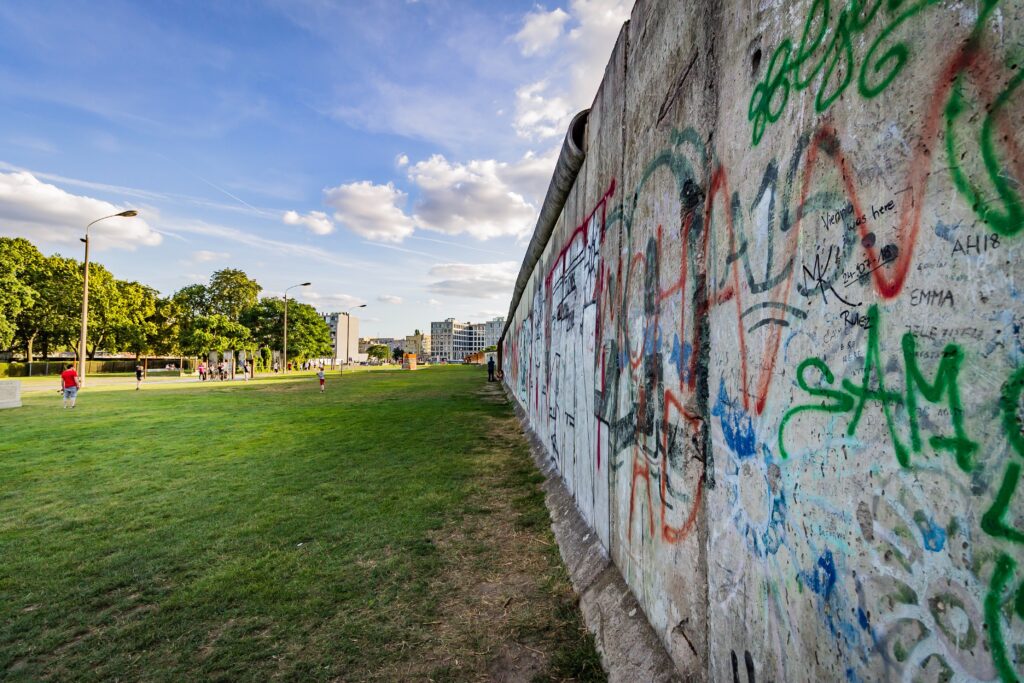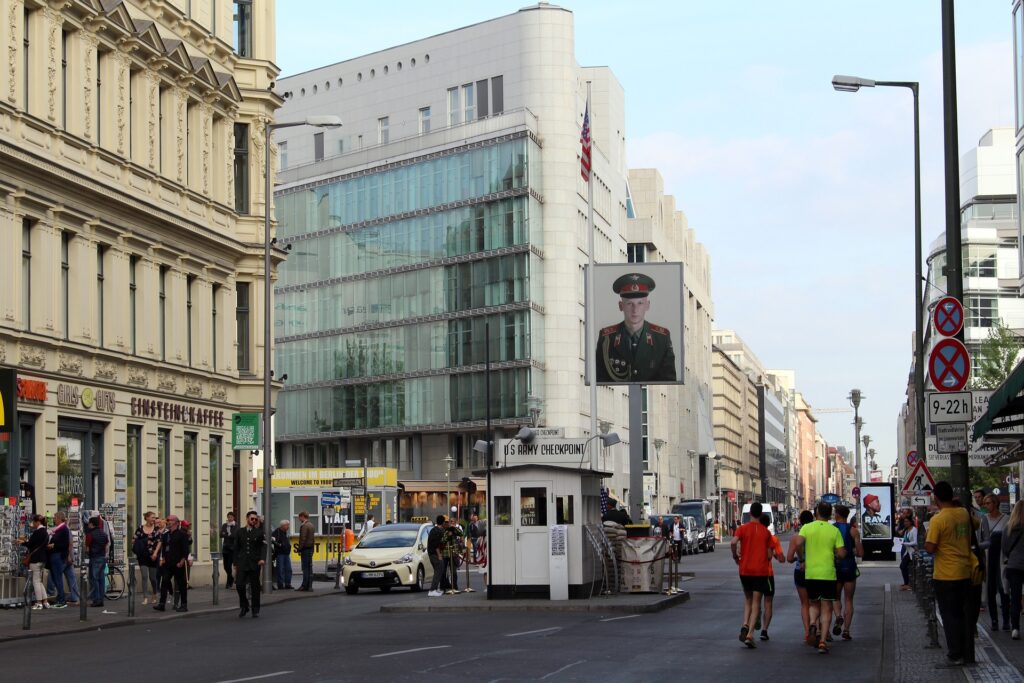A symbol of division and strife, the Berlin Wall stands as a somber reminder of Germany’s tumultuous past. This architectural marvel carries within it a rich and poignant historical significance that continues to resonate with us today. Join me on a journey to explore the deep-rooted history of the Berlin Wall and the profound impact it has left on our collective consciousness.

Erected in 1961, the Berlin Wall was more than just a physical barrier; it represented the ideological divide between the East and the West during the Cold War era. It epitomized the clash between democracy and communism, segregating West Berlin from East Germany. Beyond its concrete and barbed wire, the Wall was a powerful symbol of political tensions and served as a poignant metaphor for the separation of families and the suppression of personal liberties for nearly three decades. ️
More:Read About Fairytale-like Neuschwanstein Castle in Bavaria, Germany
The construction of the Berlin Wall in Germany caused immense pain and heartbreak for the people of Berlin. Families were torn apart, friends were separated, and the dream of a unified Germany seemed to fade away. The Wall became a physical manifestation of oppression, a constant reminder of a world divided by the Iron Curtain. However, amidst the despair, the Berlin Wall also became a source of resilience, courage, and hope.

Journey through history by visiting the East Side Gallery, a vibrant open-air art exhibition where sections of the Wall have been transformed into stunning murals. These murals bear witness to the struggles, triumphs, and the yearning for freedom. Each stroke of paint tells a powerful story of reunification, allowing visitors to immerse themselves in the emotions that shaped an entire generation.

Embark on a profound exploration of the Berlin Wall Memorial, located along Bernauer Strasse. Here, the preserved segments of the original wall, complemented by watchtowers and a chilling documentation center, authentically recreate the realities of divided lives. This memorial serves as a solemn reminder of the sacrifices made and pays homage to those who fought tirelessly for the restoration of unity.

Deepen your understanding by visiting the Checkpoint Charlie Museum, which chronicles the history of the Berlin Wall through personal accounts, photographs, and artifacts. This renowned institution showcases the indomitable spirit of those who sought freedom, highlighting their courage and the relentless efforts made to dismantle the barrier that imprisoned a nation.
More: Wanted to download Odishashop, visit here
As you explore Berlin, you will witness the harmonious integration of historical remnants with the modern cityscape. The surviving sections of the Wall now blend seamlessly into the vibrant urban landscape, creating a profound juxtaposition of past and present. Take a moment to stand on the infamous “death strip,” once a symbol of separation, and feel the pulse of present-day Berlin. This intersection serves as a powerful reminder that history is not confined to the past but is an integral part of our collective consciousness.

Today, the Berlin Wall stands as an enduring symbol of triumph over adversity, unity, and the pursuit of freedom. It signifies the resilience of the human spirit and the power of reconciliation. The fall of the Wall in 1989 marked a pivotal moment in history, igniting a wave of change that led to the reunification of Germany and the collapse of the Iron Curtain. It serves as a testament to humanity’s capacity to overcome seemingly insurmountable barriers. ️
As you stand before the remnants of the Berlin Wall in Germany, take a moment to reflect on the past and appreciate the present. Let the stories etched into its concrete reverberate through your soul, reminding us all of the importance of compassion, unity, and the pursuit of a world where freedom knows no borders. The Berlin Wall will forever remain a profound reminder that division is not inevitable, and the power to break down walls lies within each and every one of us.
So, venture to Berlin, uncover the historical significance of the Berlin Wall, and immerse yourself in the spirit of a city that transformed tragedy into triumph. Experience a place where the past and the present converge, painting a vivid picture of resilience and hope.
FAQ For Historical Significance of the Berlin Wall in Germany
What is the Berlin Wall?
The Berlin Wall was a physical barrier that divided East and West Berlin from 1961 to 1989. It separated the communist-controlled East Germany from the democratic West Germany.
Why was the Berlin Wall in Germany built?
The Berlin Wall was erected by the East German government to prevent mass emigration of their citizens to the West. It was a symbol of the Cold War division between the Soviet Union and the Western Allies.
What was the historical significance of the Berlin Wall in Germany ?
The Berlin Wall represented the harsh reality of the Cold War and the division of Germany and Europe. It stood as a physical manifestation of the ideological conflict between communism and democracy, impacting the lives of millions of people.
How did the Berlin Wall affect the lives of people in Germany?
The Berlin Wall forcibly separated families, friends, and loved ones. It restricted movement and suppressed freedom of speech, causing immense suffering and emotional pain to those who lived under its shadow.
When and why was theBerlin Wall in Germany eventually demolished?
The Berlin Wall was breached on November 9, 1989, when East German authorities unexpectedly allowed checkpoints to open. This decision was the result of growing pressure for democratic reforms and widespread public protests in East Germany.
What is the significance of the fall of the Berlin Wall in Germany in history?
The fall of the Berlin Wall symbolized the end of the Cold War era and marked the beginning of a reunited Germany. It was a pivotal moment that led to the collapse of communist governments across Eastern Europe.
What remains of the Berlin Wall in Germany today?
Some sections of the Berlin Wall have been preserved as a memorial and can be visited by the public. The East Side Gallery, a section covered in artworks, is a popular tourist attraction.
How is the Berlin Wall remembered today in Germany?
The Berlin Wall is remembered as a painful symbol of division and a reminder of the importance of freedom and unity. It is commemorated through memorials, museums, and exhibitions that aim to educate and shed light on this significant period of history.
What lessons can we learn from the Berlin Wall in Germany ?
The Berlin Wall serves as a powerful reminder of the consequences of political division and oppressive regimes. It highlights the importance of freedom, human rights, and the ongoing pursuit of peace and unity.

